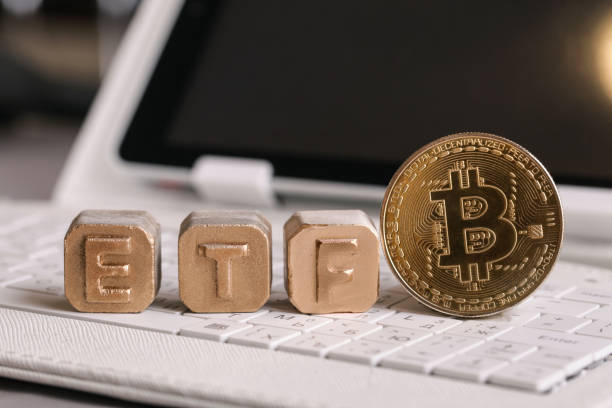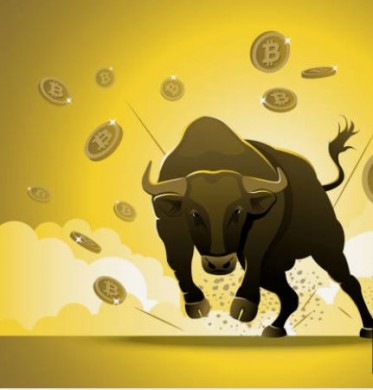Considering Bitcoin? This guide dives into the two main ways to gain exposure: Bitcoin ETFs and direct ownership. While their price movements are similar, they cater to different investors. ETFs offer a familiar experience within a brokerage account, while direct ownership allows for deeper control and potential involvement in decentralized finance (DeFi).

Bitcoin ETFs track Bitcoin’s price like a shadow, but unlike the original, they lack the very essence of cryptocurrency: direct ownership.
Bitcoin vs. Bitcoin ETFs: Accessibility Showdown
Bitcoin and Bitcoin ETFs offer convenient entry points for both big institutions and individual investors. Bitcoin itself thrives on a vast network of crypto exchanges like Coinbase and Binance. Here, you can buy Bitcoin using regular cash (fiat) or trade other digital currencies. This grants you direct ownership, and for maximum security, you can transfer your Bitcoin to a digital wallet where you control the private keys.
Bitcoin ETFs, on the other hand, boast even higher liquidity and cater more to traditional investors. They trade on familiar platforms like Schwab and E*Trade, allowing you to seamlessly purchase shares using fiat currency, just like buying any other stock.
Bitcoin vs. Bitcoin ETFs: Availability Showdown
Bitcoin operates like a 24/7 convenience store, always open for business. Bitcoin ETFs, on the other hand, follow a more traditional schedule, mimicking stock market hours from 9:30 a.m. to 4:00 p.m. Eastern Time on weekdays. This limited window might not suit investors seeking the constant access that Bitcoin itself provides.
Bitcoin Security: Convenience vs. Control
Both Bitcoin and Bitcoin ETFs offer secure ways to invest, but the level of control and risk differ. Buying Bitcoin on a reputable exchange gives you direct ownership, but it comes with some responsibility. Storing Bitcoin in an online wallet (hot wallet) exposes it to hacking risks, just like the unfortunate collapse of FTX. The ultimate security lies with hardware wallets, but losing the device or its private key means losing your Bitcoin forever—a tech-savvy solution with a high stakes penalty.
Bitcoin ETFs, on the other hand, provide a more traditional experience. You buy shares through a regulated broker, similar to buying stocks. While this eliminates the risks of managing your own crypto, it also introduces a layer of trust towards the ETF issuer.

Bitcoin vs. Bitcoin ETFs: Tracking Performance with a Twist
Both Bitcoin and Bitcoin ETFs aim to mimic the price movements of Bitcoin, holding it in custody to deliver similar returns over time. However, there can be a surprising twist. ETFs can sometimes experience short-term spikes in volatility compared to Bitcoin itself. Interestingly, as of today, Bitcoin ETFs have even outperformed Bitcoin!
Keep in mind, though, that if you’re a day trader who thrives on after-hours action, Bitcoin ETFs won’t be your best friend. Unlike Bitcoin’s 24/7 availability, ETF trades are restricted to regular market hours.
Bitcoin vs. Bitcoin ETFs: Issues of Fees
Bitcoin and Bitcoin ETFs may move in tandem price-wise, but their fee structures tell a different story. Buying and selling Bitcoin ETFs typically comes with a management fee, usually around 0.25% per trade. Some, like Grayscale’s hefty 1.5% fee, can take a bigger bite out of your returns. In contrast, trading fees on crypto exchanges are generally much lower. On Coinbase, for instance, you might pay anywhere from 0.05% to 0.6%. So, if keeping costs down is a priority, Bitcoin might be the more budget-friendly option.
Bitcoin vs. Bitcoin ETFs: Issues of Regulation
Transparency takes center stage with Bitcoin ETFs. The SEC keeps a watchful eye, ensuring all the Bitcoin and ETF claims are safely stored in custody. This stands in stark contrast to Bitcoin itself. Bitcoin thrives on a decentralized network, free from any single governing body. As a result, US regulations around crypto platforms are still taking shape.
Bitcoin vs. Bitcoin ETFs: Choosing Your Adventure
The world of Bitcoin beckons, but how do you enter? Here’s a breakdown of the two main paths: Bitcoin ETFs and direct ownership.
The Familiar Route: Bitcoin ETFs
ETFs are ideal for traditional investors who want a taste of Bitcoin without leaving their comfort zone. You can buy shares through your existing brokerage account, along with your stocks and bonds. It’s a familiar and regulated approach to adding a dash of crypto to your portfolio.
The Gung-Ho Approach: Direct Bitcoin Ownership
For the crypto enthusiast, direct ownership offers a deeper dive. You’ll need to set up a crypto exchange account and a digital wallet to store your Bitcoin. This path gives you more control and opens doors to decentralized finance (DeFi) opportunities, like converting your Bitcoin to Wrapped Bitcoin (WBTC) to unlock potential returns.
Learn from market wizards: Books to take your trading to the next level.














